Despite the border closures due to Covid-19, young men from Gitega, Karusi, Mwaro and elsewhere continue to defy the ban to seek work in Tanzania. Some come back in bad shape, sick, or victims of beatings by the Tanzanians. Exhausted, some die when they arrive on Burundian soil. Investigation.
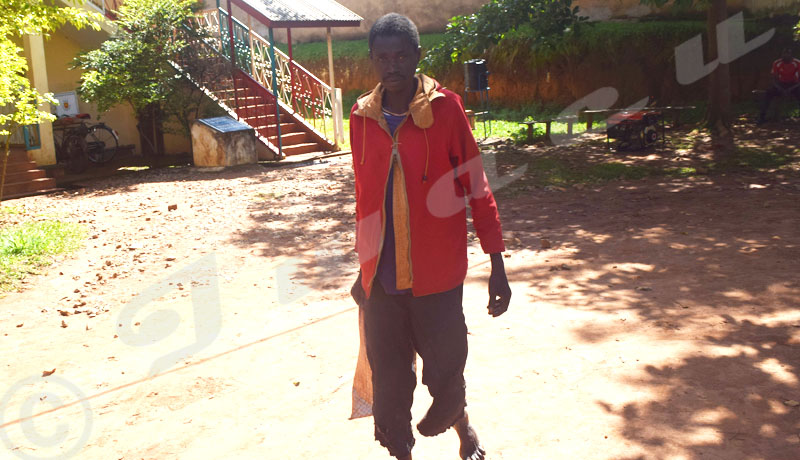
Ntimpirangeza in front of the Kayogoro commune offices.
In rags, his feet bare and swollen, emaciated, with a small bag filled with a few personal belongings, Ntimpirangeza, a man in his thirties, cuts a sorry sight. On this Tuesday, November 24, 2020, he is curled up on a bench in front of Kayogoro commune local government offices. He has suddenly aged. This young man, originally from Nyabihanga commune in Mwaro province, was returning from a health centre in Bigina zone, Kayogoro commune, where he was hospitalized. He had returned from Tanzania five days ago, in bad shape. “When he arrived at the Malagarazi river, we noticed he was very ill. He was complaining of abdominal pain. We took him to the health centre. He only had 4,800 Burundian francs on him,” said a resident of Bigina zone.
“I was in Tanzania for over five years. I entered from Nyanza-Lac commune. My job was to plough the cassava fields of the Tanzanians,” says Ntimpirangeza in a soft voice. He has difficulty speaking, and his body shakes with occasional spasms. A few months ago, the young man became ill: “I think it was a stomach problem. I spent all my money on treatment. No result. I couldn’t do my job anymore.” Tired of this “dead weight”, his employers chased him away unceremoniously, without paying him. “That’s what they do all the time. When someone gets sick, they are kicked out without pay. Other Burundians collected a bit of money so I could come home.”
Deaths in Bigina
It was a long journey for Ntimpirangeza to reach the Malagarazi river. “I travelled on foot for several days. I had made some corn dough.” He said he rested in villages along the way. Without any travel documents, he had to remain in hiding. “If the Tanzanian police catch you, you are beaten to death. Fortunately, I was able to get home without coming across them.”
The young man was happy to have returned to his country: “I don’t think I will ever go back there.” With a road map issued by the administrator, Ntimpirangeza was able to return to his native hill thanks to the intervention of residents from Nyabihanga, and the commune promised to pay his hospital fees.
Others were not so lucky. Residents of Bigina zone mentioned two seasonal workers who had come back from Tanzania and died recently. The Kayogoro commune administrator, Antoine Ndayiragije, confirmed this: “Someone from Mutaho, in Gitega province, was kicked out after his health had already deteriorated. When he arrived in Kayogoro, he didn’t survive. He died before reaching the health centre.”
Local authorities from Mutaho commune and the person’s family went to Kayogoro. “As it’s difficult to transport the body over a long distance, the person was buried in Kayogoro. We gave them a hand with the funeral”. There is also another case, that of a seasonal worker from Shombo commune in Karusi province. “There were clashes between Tanzanian herders and Burundian workers. The Burundians were seriously injured. Two Burundians came for treatment at the Mayange Health Centre. We informed their families in Shombo. Unfortunately, one of them didn’t survive. He died from his injuries.”
Tough living conditions in the land of Mwalimu Nyerere
Burundians who go to Tanzania work for landowners who grow cassava or tobacco, or they herd cows. “When you plough a land of 80 metres by 80 metres, they give you between 30,000 and 40,000 Tanzanian shillings (around 15 dollars)”, says Ntimpirangeza. However, those who return from Tanzania say that the food is inadequate. “They give us corn dough and beans. Even if you spend 20 years there, they still give you the same food,” says another seasonal worker. They live in huts in the middle of the forests. “We live among animals.”
Without any official documents, they are easy prey for the “Wanamugambo”, law enforcement officers or police. “Smugglers collect our ID cards as soon as we enter. They tell us not to say that we are Burundian.” These seasonal workers say their employers mistreat them with impunity. “If you run into a bad employer, you can say goodbye to your salary. Some of them hit you all the time, because they know we can’t complain. Our compatriots are dying from ill-treatment and disease.” When a worker gets sick, he continues, employers throw him out like a pair of old socks.
A porous border — the authorities struggle to stop them
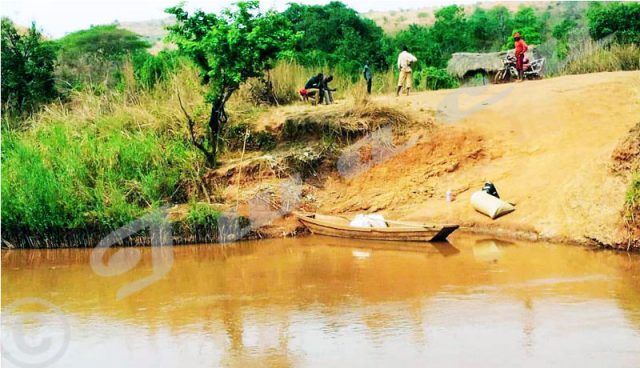
The Malagarazi river in Bigina zone is one of the preferred clandestine crossings.
“Kayogoro commune borders Tanzania. Ten of the 29 hills that make up our commune share a border with Tanzania. The part of Malagarazi that is in our commune is very long. There are well-known crossings (ivyambu) and several other smaller, clandestine crossings that are difficult to control,” says the administrator of Kayogoro commune.
Officially, the border is closed. People are not allowed to cross. “We only exchange commercial products. But there are people who come from other provinces like Gitega, Karusi, Mwaro, Kayanza, Ngozi and Bururi and cross the border secretly.” And sometimes, he continues, we see they’ve come back. “We let them enter our commune. First, a medical team must test them for Covid-19. After examination, they spend a few days here in isolation. And after the results, we let them return to their communes of origin.”
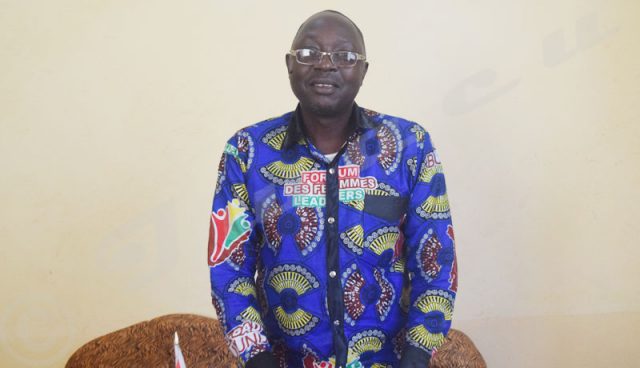
Antoine Ndayiragije: “Some come home sick, beaten or mistreated by the Tanzanians. They’ve been robbed of their money and belongings.”
However, the commune administrator mentions some serious problems with these seasonal workers: “Some come back sick, beaten or mistreated by the Tanzanians. They are robbed of their money and belongings, so it is difficult for them to move around without money. In these situations, we work with the administrators of their communes of origin and their families to help them return to their native regions.” He says there is a need to educate these seasonal workers so that they become aware of the dangers of using illegal crossings. “There is an official crossing in Mugina in Mabanda commune. There, all they have to do is show a laissez-passer, and they can leave without any problems. Tanzania has its own customs. Honestly, they don’t like these Burundians, even if they employ them to work in their fields.” He went on: “We should encourage them to inform the administration so that we can intervene quickly if there are problems. It appears to be very difficult to make them understand that. There is still a lot to be done in this respect.”
The same situation occurs at the border between Bukemba commune in Rutana province and Tanzania. “Seasonal workers from other provinces are often intercepted. During the dry season until September, this movement of people intensified,” says Françoise Twagirayezu, the Bukemba commune administrator. She says they noticed a lot of Hiace buses dropping people off at night. They would waiting at Gihofi until daybreak. “There were even minors. They were intercepted so we could send them back home. The governors of Gitega and Karusi often came to pick up residents of their provinces.”
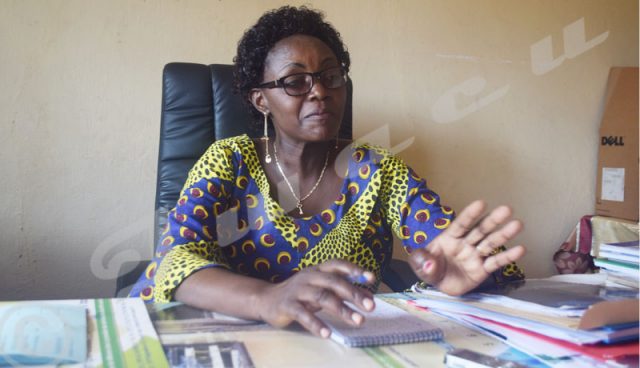
Françoise Twagirayezu: “When several dozen people gather in one place during the night, it’s worrying.”
The commune administrator said this was a source of insecurity. “When several dozen people gather in one place during the night, it’s worrying.” The Bukemba administrator stressed that it is difficult to prevent them from leaving. “There are about eight illegal crossings at the border between Bukemba and Tanzania.”
A reminder: A group of 16 people, including young Imbonerakure from the ruling party and administrative authorities, including the Bigina zone chief and four police officers – among them, the commune police commissioner – got together in an organized gang to kill and extort Burundians returning from Tanzania. The pretext was the Covid-19 pandemic. Accused of murder and extortion, they are currently detained in Murembwe prison in Rumonge province. “With these convictions, some young people in Bigina have learnt a lesson,” said a local resident.
Fabrice Manirakiza & Rénovat Ndabashinze




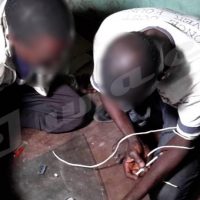











 IWACU Open Data
IWACU Open Data

